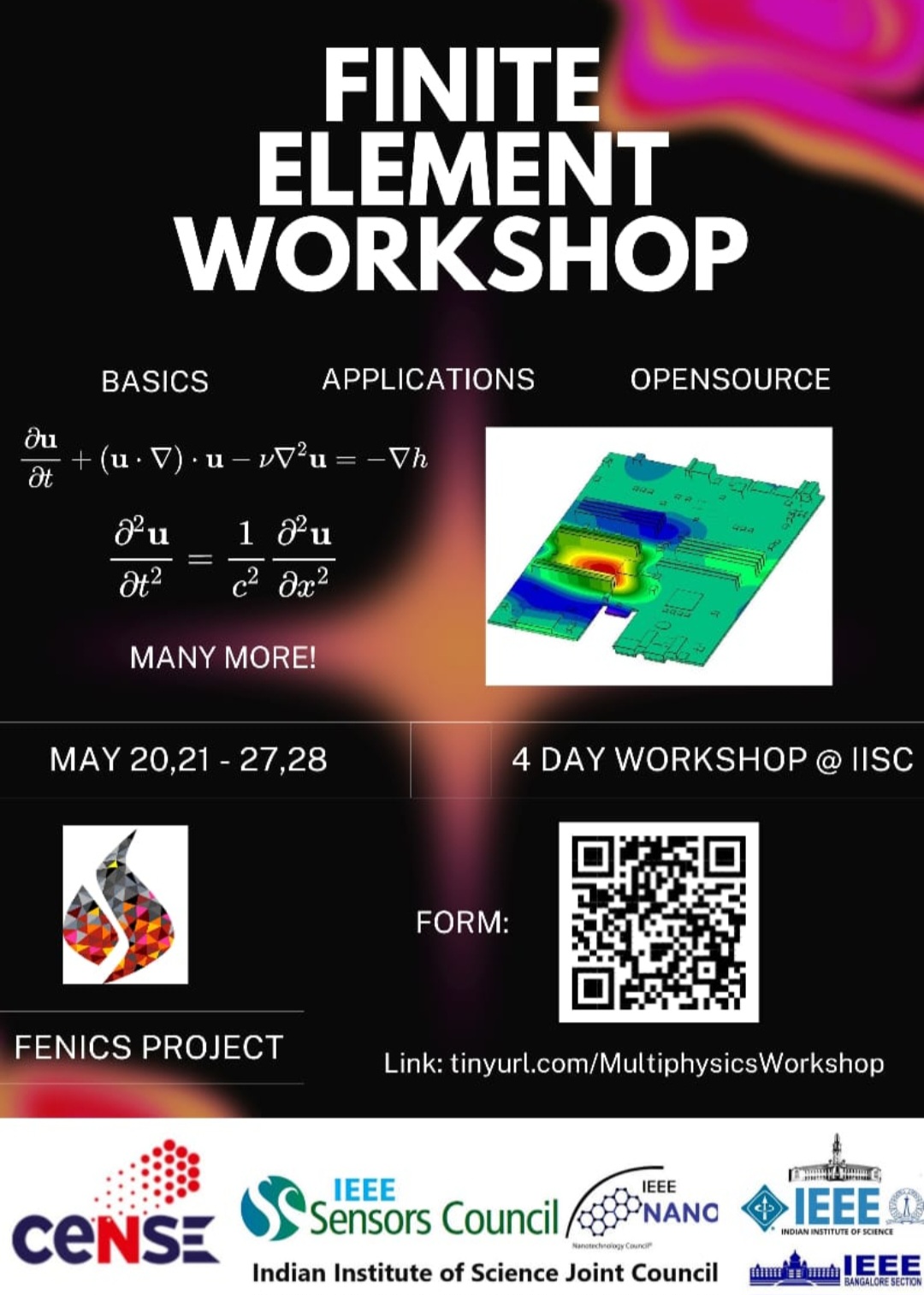Latest news & Updates
- IEEE IISc Sensors and Nanotechnology Joint Council's chapter in association with the IEEE IISc student Branch and IEEE Bangalore section welcomes you all in a 4-day Finite Element Workshop held on each Saturday and Sunday during the period of 20th to 29th May 2023.
Venue: CeNSE, IISc Bangalore
Our Instructors: Sudipta Nayak, Satyarthi Mishra, and Gourab Panigrahi
Following is our event schedule and what we plan to cover!
🟢 20th May
10:00 – 13:00
a) Simulating PDEs: An Introduction
b) Finite Element vs Finite Difference
c) Introduction to Finite ElementThis would mostly be an introduction and Theory Session into Finite Element Analysis
14:00 – 17:00
a) Basic Template – Scripts, COMSOL
b) Your first programThe first programming Session, where the participants will write their first script of FEA.
🟢 21st May
10:00 – 13:00
a) Simulate Wave Equation
b) Simulate Reaction- Diffusion EquationGuided Simulation of Wave Equation and Reaction- Diffusion Equations in different settings
14:00 – 17:00
a) Do we have a solution?
b) Do we have a unique solution?
c) Is the simulation solution real?
d) Can we trust it?We will take up a case study where Computer Simulations were used to give a Mathematical Proof. We will also talk about simulation inaccuracies and pitfalls.(Request People to submit Multiphysics they want to see. These examples will be covered on the last day)
🟢 27th May
10:00 – 13:00
a) Multiphysics-basics
b) Thermomechanics
c) ElectroThermal Effects
d) Optothermal Effects
e) Electrothermomechanical SimulationGuided Simulation of Multiphysics Systems. Many Examples will be covered.
14:00 – 17:00
a) Principles of Hardware for FEA
b) Principles of Parallelisation in FEAA brief survey over the Hardware and Parallelisation Principles involved in FEA. We will take up FeNICS as a case study.
🟢 28th May
10:00 – 17:00
a) We will solve more and more examples and include Multiphysics that the participants ask for.
So what are you waiting for! Hurry up and book your seat by registering on the following link 👉https://lnkd.in/gJeXdtUx

